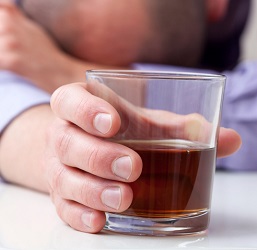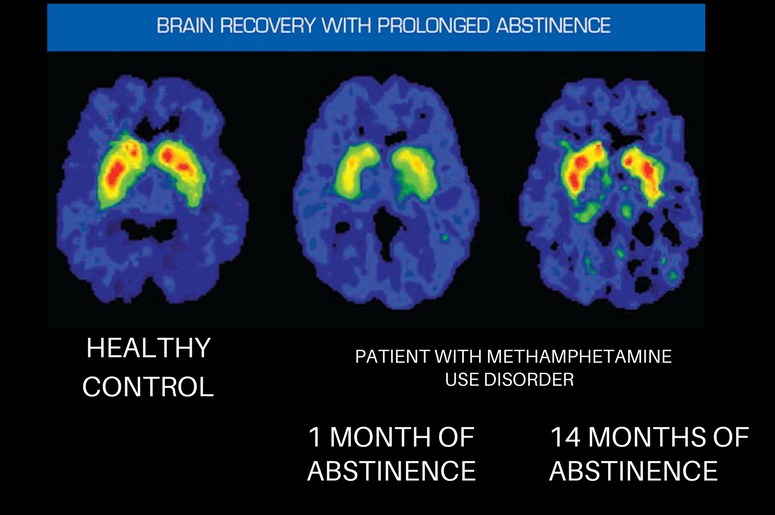However, numerous lines of evidence implicate a sleep stage called Rapid Eye Movement. After you drop off to sleep, your brain goes into three progressively much deeper stages of non-REM sleep, which is mostly dreamless. After about 90 minutes, it gets in Rapid Eye Movement sleep, which is when most dreaming takes place. Typically, the brain will cycle through these phases a number of times in the course of a night's sleep, with the REM stages getting gradually longer.
Research recommends that we process psychological memories during healthy Rapid Eye Movement, helping us "unlearn" frightening or uncomfortable experiences. Els van der Helm and Matthew Walker, sleep researchers at the University of California, Berkeley, have hypothesized that the normal pattern of psychological processing that occurs during Rapid Eye Movement sleep breaks down in people with depression.
Surprisingly, in some people, total sleep deprivation can quickly raise anxiety, though only temporarily. Van der Helm and Walker believe that this may work in much the same method as the antidepressants by denying the brain of this inefficient kind of Rapid Eye Movement. Problems with Rapid Eye Movement also appear to contribute in post-traumatic stress condition (PTSD).
A evaluation of research study suggests that the drug prazosin, which doctors typically prescribe for high blood pressure, can alleviate the problems of military fight veterans with PTSD.Noradrenaline suppresses Rapid Eye Movement sleep. By lowering the hormone's concentration in the brains of veterans with PTSD, prazosin might promote more effective Rapid Eye Movement, which then eliminates the emotional label that is triggering their recurrent problems.
As well as assessing the incidence and nature of sleep troubles in people with these conditions, the scientists will arbitrarily designate participants with sleep issues to receive either their normal care or treatment at a sleep center. Explaining their upcoming study in the journal BMC Psychiatry, the psychiatrists compose:" Regardless of a high occurrence of sleep conditions and developed unfavorable effects on mental health, little attention is paid to sleep issues in mental health care.
The Best Guide To How Mental Health Affects Gun Violence
Sleep is as crucial to our health as eating, drinking and breathing. It permits our bodies to repair themselves and our brains to consolidate our memories and procedure info. Poor sleep is connected to physical issues such as a weakened immune system and psychological health problems such as stress and anxiety and anxiety.
This consists of easy methods to enhance your 'sleep health', such as changing the light, sound and temperature level in the bedroom and changing your consuming, drinking and workout routines, suggestions which can likewise be found in Sleep Well, our helpful pocket guide to much better sleep. The report likewise consists of suggestions on how Cognitive Behavioural Therapy can be more reliable in assisting people with long-term insomnia than medication, and how NHS policy might be changed to show this reality.
Have you ever gone to bed stressed about a crucial, early morning meeting? You understand you require to be well rested in order to put your best foot forward, so you invest the entire night lying large awake considering how you really need to fall asleep? It's something we've all experienced.
Dealing with the rare restless night is one thing, but for many individuals, restlessness isn't an isolated occurrence. In truth, it's estimated that 40 million Americans have a chronic sleep disorder. And with sleep and mental health being so closely associated, there's an undeniable connection happening. 50% to 80% of individuals seeking psychological health care likewise complain of issues with sleep, and those who are suffering from anxiety, anxiety, or ADHD are particularly likely to face sleep too.
However, more current research has actually suggested that this may not be the whole story. These research studies have actually found that sleep disturbances may in fact be working as a trigger, raising your threat of establishing a mental health condition. While researchers aren't exactly sure why this is, they have discovered some connections.
The Basic Principles Of Information On How Stigma Affects People With Mental Health Conditions
Studies have actually revealed that REM sleep helps our brains enhance finding out skills, memory, and overall psychological health. When this kind of sleep is interfered with, our neurotransmitters and tension hormonal agents are also disrupted. Therefore, this disturbance can intensify any already-present signs of psychological health conditions and vice versa. Numerous studies have actually revealed that up to 90% of grownups and children with depression also suffer from some type of sleep problem.

One longitudinal research study found that individuals with sleeping disorders were 4 times most likely to develop depression Drug Rehab Facility than their non-insomniac equivalents. Numerous other research studies have actually looked at the relationship in between sleep and anxiety in young individuals. Surprisingly, they discovered that sleep problems began before their anxiety did. It's estimated that over half of adults experiencing generalized stress and anxiety condition also have sleep problems.
Being nervous can make it challenging to fall or stay asleep, which can then cause stress and anxiety about losing sleep. One study found that over half of people afflicted with both sleep concerns and stress and anxiety developed anxiety specific to dropping off to sleep at night. Much like depression and sleep, losing quality rest can enhance the signs of stress and anxiety.
There are less studies on the impacts of ADHD on sleep, but lots of adults and kids with ADHD will grumble of comparable sleep disturbances. Numerous sufferers will frequently experience "perverse sleep" being awake when it's time for bed and being tired when it's time to be awake. Individuals with ADHD will regularly report problems with falling asleep, remaining asleep, and getting deep, peaceful sleep.
Acknowledging the power of sleep and its relationship with mental health is more crucial than ever in today's busy, restless culture. Understanding how one affects the other not only helps in getting the most precise diagnoses, but also aids in enhanced treatments for both conditions. To read more about Neurocore's med-free sleep program, give us a call at 800.600.4096.
The Best Strategy To Use For How Intolerance Affects Mental Health

Do you typically work longer in the night? Do you invest a lot of time partying with good friends into the early hours? Or do you have children who frequently keep you awake at night? With work, family and other life dedications, a number of us just don't get the advised seven or 8 hours of sleep.
It can be easy to dismiss sleep as not being very important in preserving a psychologically healthy lifestyle but are we missing a trick? How essential is an excellent night's sleep to how we function mentally? of discusses why sleep is so important to our, and what we can do to assist improve our sleeping practices - how drug use affects mental health.
The outcomes of one research study (Yoo, Gujjar et al (2007 ). A deficit in the capability to form brand-new human memories without sleep. Nature Neuroscience, 10( 3 ), 385-392) show that a night of relaxing sleep may 'reset' brain reactivity in order to prepare for emotional obstacles the next day. Sleep has an essential restorative function in 'recharging' the brain at the end of each day, simply like we require to charge a smart phone battery after extended usage.
Continuous bad sleep can be a big danger aspect for the advancement of significant depressive condition. The risk of sensation and/or (as well as getting worse existing stress and anxiety and depression) increases with the seriousness of, therefore it is very important to acknowledge and figure out sleep issues as quickly as they are recognized.